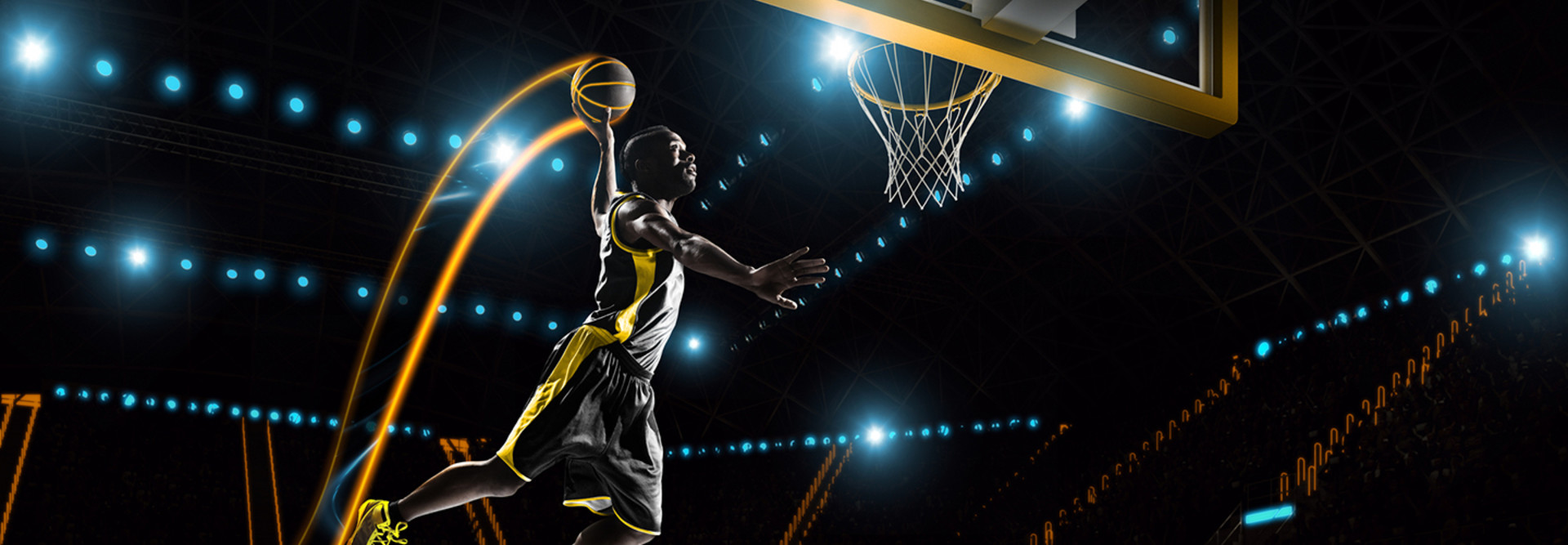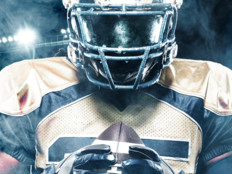AI May Upend the Competition and Business of Sports
Your favorite athlete may soon have a new coach on the sidelines — artificial intelligence.
Part statistician and part data scientist, AI can be used to help gather game-day data in real time while also accessing historic data. The combination can be used to help coaches make decisions and players gain a competitive advantage over their opponents.
The potential for AI in the sports industry doesn’t stop there. Providers are tapping the technology to reimagine everything from sports broadcasts and sponsorships to officiating NASCAR and judging the Olympic Games.
“Artificial intelligence can simulate such a quantity of events that it allows a data scientist to translate the insights, and make recommendations as to what will happen on the pitch,” according to Stats, a data and technology firm based in Chicago.
“This arms coaches to make informed decisions on individual players and is vital in preparing for a game,” the firm adds. “The added insight can influence which players are selected in team sports and be helpful with a tight turnaround between games such as is the case with football. Beyond individual training schedules that should be organized, it can aid in determining tactics based on the opposition’s playing style.”
Stats gathers sports data for about 650 customers, including Major League Baseball and the FIFA World Cup. This year it announced an expansion of its investment in AI as a tool for gathering and analyzing data more effectively.
“There’s lots of video footage that exists globally of historic games,” Richard Henderson, chief revenue officer of Stats, told the Chicago Tribune. “If we can get computers basically to watch the game and code the game, that enables us to aggregate data sources on a much grander scale than individual humans can.”
SIGN UP: Get more news from the BizTech newsletter in your inbox every two weeks!
AI Can Be Used for Predictive Analytics in Sports
The use of such data can enable teams to use AI for predictive analytics, Henderson says. That insight could allow a coach to make a sideline decision based on previous plays that are predicted to result in points on the board.
The appeal of AI in the sports industry is being felt worldwide.
Fujitsu plans to introduce AI technology to help judge the Olympic Games in Tokyo in 2020. Barbara Kendall, a former Olympian who now works in the tech field, has seen the linkage between sports and AI firsthand.
“Artificial intelligence is disrupting the very way we view sports and athletes play the game — and automation is playing a huge role in this,” she tells SportTechie. “For example, sports teams are putting robotic sensors in athletic clothing and equipment, gathering data when athletes are wearing or using them, and then leveraging the data in all sorts of ways: from providing sports fans with real-time stats and coaches with data to help them inform and coach performance.”
Kendall points out several ways in which Olympians have begun using AI, including the use of GPS trackers on boating equipment in sailing competitions, and in rowing, where athletes are using trackers that measure stroke rate per minute and other data in real time.
Other examples of AI in sports abound. NASCAR has improved officiating by adopting AI technology to identify infractions on the racetrack. The Tampa Bay Lightning, an NHL team, is using an AI-based chatbot, ThunderBot, to improve in-stadium customer service.
David Wright, chief marketing and commercial officer for MLB, tells SportTechie that he thinks AI technology will be an emerging trend over the next two decades. His focus is on how AI can better serve the sports fan, not calculate statistics.
“I believe technology will play an integral role in creating in-ballpark/venue experiences that simplify the overall experience while providing all the amenities (or more) that a fan would experience at home in their living room,” Wright says.








